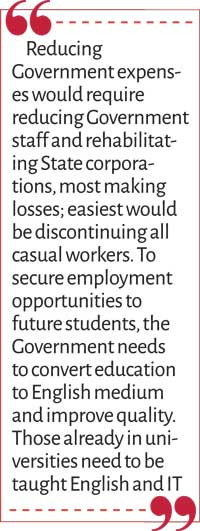'Shouldn’t every Sinhala son of this country be ashamed?' - Sritharan calls for justice
28 June 2022
Tamil National Alliance MP S Sritharan delivered a scathing address to Sri Lanka’s parliament last week, where he denounced the army’s attack on Tamils at a petrol station in Mullaitivu and state-sponsored Buddhist colonization of the North-East in defiance of court orders, and called for justice for both.
Speaking in parliament, the lawmaker described how “fellow citizens belonging to another ethnicity of this country has been savagely attacked by the Sinhala army and Sinhala police”.
“It looked a battlefield when I went to Visvamadu Junction to see it for myself,” he said, referring to the incident in which troops fired shots and beat Tamils who had queued for fuel.
“Where is this country going?” he asked. “Whose country is this? Who has the law in their hands? Who is prepared to abide by the law and behave sincerely according to the law of the country? Can you say that this is the kind of justice and fair play that exists in this country? One exclusive law for the Sinhalese and another for the Tamils and Muslims.”
Sritharan went on to directly address former Sri Lankan prime minister Mahinda Rajapaksa, stating “the debts you incurred to wage the war and the debts you incurred for procurements of armaments as a result of the war you had waged for thirty to forty years in this country have plunged it to the bottomless ditch”.
He also condemned efforts by the Sri Lankan military and Sinhala Buddhist monks to erect a Buddha statue at Kurunthurmalai in Mullaitivu, which took place despite the presence of a Sri Lankan court order banning any construction activity.
“Five students went missing in Trincomalee,” said Sritharan, referring to the infamous Trinco 5 murder by Sri Lankan soldiers. “The court could do nothing. To this day the international community questions this injustice. But what happens in this country is just the opposite. The verdicts of the courts are insulted. Isn’t this a shame to the country?”
“Shouldn’t every Sinhala son of this country be ashamed? Every Sinhala leader should self-search. Isn’t this disgusting? If a country does not respect a court order, how can you bring justice to this country? How can you create a brotherhood? How are you going to tolerate your fellow countrymen? Think about it.”
The lawmaker added that even as such activities take place, political prisoners are still dying today, the mothers of the missing are still struggling in the streets today”.
“A particular community for its race, religion and ethnicity is being exterminated deliberately,” he concluded.
Watch his adress in tamil and read the full text of his translated speech below.
_____
Honorable Deputy Speaker!
I would like to record an important incident in today's discussion. On 18th June 2022 at the Visuvamadu filling station in the administrative area of the Mullaitivu district, there was a long queue of people waiting for their turn to get the fuel. It was around 7.30 pm. A mentally unsound man who was in the queue got involved in an argument with the people there which unfortunately resulted in a commotion.
At that time some army personnel belonging to the 572nd battalion of Visvamadu rushed to the spot and have dragged away that mentally ill person to their camp and attacked him with clubs and bayonets causing severe bloody wounds. When some concerned youths from the same area who observed the cruelty went near the army guard and asked for the reason for the attack on that particular person, the army soldiers then threatened the youths and evicted them. Following this a large number of soldiers armed with clubs and sharp weapons, were brought in two heavy vehicles. They beat hundreds of civilians including women waiting in the fuel queue. They also assaulted the elderly and the people who were not involved in the incident in any way but walking along the road for their various businesses. Thus, the following six persons, including one from Jaffna were admitted to the Kilinochchi and Mullaitivu District Hospitals with serious injuries.
- Mr. Selvarasa Srikanthan - 43 years old, from Visuvamadu West, Mullaitivu.
- Mr. Mayilvaganam Jegatheeswaran - 37 years old, from Naganthittam, Punnainiravi, Kilinochchi. He is also the Chairman of the Naganthittama Rural Development Board.
- Mr. Sasikumar Vidushan. -25 years old, Naganthittam, Punnainiravi from Kilinochchi.
- Mr. Jegatish Nadarasa, 36, hailing from Udayarkaddu North, Mullaitivu.
- Mr. Malayandi Dinokaran, 43, of Chundikulam Road, Uzhavanur who incidentally was a former militant having lost one of his legs while the other leg is in a state of paralysis.
Four of the six victims have been admitted to the Kilinochchi District General Hospital and two at the Mullaitivu District Hospital in police custody. They are being treated under police supervision. The cruel attacks was carried out on innocent civilians who have been waiting all day to get fuel for their occupational needs... The barbaric attack on the innocent who were waiting in the queue to get some fuel to carry on their cultivation activities has caused great discontent and outrage among the people of the area.
Following the incident, a large number of armed troops was deployed at three places on the main road mostly frequented by the public - the Vishwamadu junction and near the camp where the incident took place. The deployment of troops at these places threatens and affects the normal life of the people in the area. Therefore, I urge the President of this country and the relevant minister through this august assembly to take appropriate action against the inhumane attack by the military and thereby provide justice to the victims and prevent military interference at public places like filling stations.
Honorable Deputy Speaker!
In this country there is a protest going on at Galle Face Green. Here too, many of the youth in the south are leading their Sinhala Brethren in the struggle. They push up against the barricades of the Sri Lanka police. They push the military and carry on their democratic struggles. People across the country are waiting in the streets for fuel. When I left Jaffna last night and came to Colombo, the streets were full of people for three or four days. The streets there were as busy as festival days with women, men and children waiting for fuel.
No one knows where this country is heading to. But this is how the people were waiting for fuel at the farmers' co-operative filling station in the Visvamadu area. It happens to be the only filling station there. Is it wrong and unfair for anyone to ask when a mentally unsound, innocent ignorant young man is taken away by the army and attacked? Should it not be asked?
I went there at ten o'clock that night on the 18th. The soldiers were holding clubs behind them. The army personnel were piled up with huge sticks… The police had come there. Yet, the three arrested youths were kept hidden inside the army guard post. When I asked the police, they said they (the army) would give them back to us whereupon we would produce them at the court and get them released. However, they were handed over to the police only the next day - after they had beat the arrestees incessantly, until their arms were broken and physically injured. After that, they were admitted to Mullaitivu Hospital with their hands tied. How many horrific incidents like this are taking place in this country? Here you are talking about fuel. The Hon'ble Minister Manusha Nanayakkara who spoke before me said people in this country are standing in line. People have a thousand odd problems. The regime has not changed however.
You say that we missed the right opportunities. But the fellow citizens belonging to another ethnicity of this country has been savagely attacked by the Sinhala army and Sinhala police. It looked a battlefield when I went to Visvamadu Junction to see it for myself.
Therefore, Hon'ble Deputy Speaker!
Where is this country going? Whose country is this? Who has the law in their hands? Who is prepared to abide by the law and behave sincerely according to the law of the country? Can you say that this is the kind of justice and fair play that exists in this country? One exclusive law for the Sinhalese and another for the Tamils and Muslims. If the fighting youths are Sinhalese, you treat them as your children or youth of the country.
Former Prime Minister Mahinda Rajapaksa is also present here. Please listen to this. The debts you incurred to wage the war and the debts you incurred for procurements of armaments as a result of the war you had waged for thirty to forty years in this country have plunged it to the bottomless ditch.
Haven't you thought about the reality of this country yet? Do you still not understand the ground situation prevailing in this country? People are standing in the queues for gas for days, standing in line for fuel and have begun to line up even for their food. But the army is cracking down on those innocent people for no fault on the peoples’ part. These are just a tip of the iceberg of the atrocities of the army, who remain concentrated in the North and East upon the Tamil people, who live in an open-air prison-like atmosphere. Their lands are being confiscated, whilst they are being physically subjugated militarily.
Particularly speaking, 70 percent of the land in Valikamam North is still in the hands of the military. Hon. Deputy Speaker. Of course, production levels in this country should be tremendously increased. They say production would have to be carried out. The areas in the north of Valikamam are remarkably famous for betel, vegetable, and cashew plantations, but are yet to be liberated by the military. The military is engaged in cultivation in lands belonging to the public, without releasing the plots to the owners.
But, what is everyone talking about in this country? You can use those lands for rice and vegetable farming and thereby improve the economy of the country and the social status of the people.
In that connection, I just want to record here that you cannot establish justice in this country so long as the country is taken forwards with religious fanaticism, racist thoughts and discrimination against one race without realizing the realities in its correct perspective.
Therefore, those who have been attacked want justice. They have been beaten and their limbs have been broken making them immobile in some instances. The army have beaten and broken the hand of the president of the Punnainiravi Rural Development Board. He is admitted now in the Kilinochchi Jegatheeswaran hospital... In a similar way, another young man has been beaten with his arm broken. I visited both at the hospital yesterday.
Therefore, Deputy Speaker!
The greatest anarchy in the form atrocities by the army is taking place on this soil. I would like to present through this House that the United States, India and European countries which are thinking about the current anarchical status of this country. They should take note of the ongoing violence against the Tamil people by the military and all such acts of violence.
I want to point out a most important point here. Last week at a place known as Kurunthur Hills in the Mullaitivu district, all of a sudden and out of the blue, the military brought hundreds of innocent Sinhalese people accompanied and commanded by Buddhist monks and paramilitary troops to place a statue of Lord Buddha at the spot of worship where Lord Shiva was worshipped by Hindu Tamil people for many many generations.
Buddha taught compassion, love, kindness and brotherhood. On the contrary these people sought to erect a statue of that noble man Buddha in a bellicose manner occupying the place of another god venerated by Tamil Hindus. Upon hearing this unjustifiable usurpation, Tamil people of Mullaitivu District and other surrounding districts got themselves congregated there and staged a protest and blocked the erection of the statue.
Honorable Deputy Speaker!
Doesn’t this seem a bad thing? There is already a restraining order by the court. Mullaitivu court has ordered that the adherents of both religions should not do any construction work here. Can the Buddhist monks in this country with the help of the police erect a statue of a Buddha in defiance of such an explicit court order? So, on whose side the court of law is in this country? Who authorized these people to violate the power of the court? I think the court rulings in this country were treated in insult during your tenure. Why I say this is because a person who was given a five year imprisonment is now a minister whereas the critic of the government is serving a jail sentence. In such a dominant environment, this government has the audacity to place a statue of Lord Buddha on the territory in defiance of the judgment given by the court. How free are the courts here? Are the views of the court of law are listened and heeded in this country?
Honorable Deputy Speaker!
A parliament in this country is an august assembly. Laws are passed in this highest council and referred to the courts for implementation. The court issues orders on the basis of the legal enactments. Is it not anarchic that laws or court verdicts cannot be executed or implemented on those orders in this country?
Just because they are Buddhist monks, can they violate the court order? Mullaitivu Neeraviadi Pillaiyar Kovil belonged to Hindus of Tamil origin from time immemorial. A Buddha statue was forcibly placed there. When the Buddhist monk who was behind the placing of the Buddha’s statue there died of cancer, they openly took the body to the place and cremated his body there.
Honorable Deputy Speaker!
A Buddhist monk’s body was cremated there in defiance of a court order. What judgment does this court give to those Buddhist monks today? Five students went missing in Trincomalee. The court could do nothing. To this day the international community questions this injustice. But what happens in this country is just the opposite. The verdicts of the courts are insulted. Isn’t this a shame to the country?
Shouldn’t every Sinhala son of this country be ashamed? Every Sinhala leader should self-search. Isn’t this disgusting? If a country does not respect a court order, how can you bring justice to this country? How can you create a brotherhood? How are you going to tolerate your fellow countrymen? Think about it. The president pardons the murderer of the Mirusuvil massacre. Maithripala Sirisena when he was president grants amnesty to the same Buddhist monk who was sentenced to prison by the court for arson at Neeraviyadi .
But political prisoners are still dying today. The mothers of the missing are still struggling in the streets today. A particular community for its race, religion and ethnicity is being exterminated deliberately. But, in another sense you are committing injustice at Kurunthur hill. I have already recorded the injustice in this council. The karmic reactions will not make you live for the sins you have been doing under the guise of protecting Buddhism. It has been clearly said in Buddhism.
You go to Anuradhapura, Honorable Deputy Speaker!
Buddhism has clearly prescribed the punishments to be meted out when a sinner is sent to hell for the sins he committed. I did not say this but Buddhism itself says. That person will be thrown into a pot of boiling oil; he will be made to climb an impaling stake; he will be made to climb a thorny tree, etc. etc. These punishments have been depicted in pictures in the Anuradhapura Temple. Are the Sinhala leaders committing this kind of injustices, having still known these Buddhist edicts depicted in the Anuradhapura temple? Are the Buddhist monks committing this kind of injustices having still known these Buddhist edicts depicted in the Anuradhapura temple? Hence, you had better think again and again about the atrocities your leaders and monks are committing against your fellow citizens.
Therefore, I urge the House to accept at least the views of the courts and uphold justice and fairness.
In conclusion, I want to emphasize here that those who were affected at the Vishvamadu incident must be granted justice. And at the same time, plans are under way to expropriate 400 acres of land at Kurunthur Hill. The people there also must be provided justice by the government by withdrawing the expropriation

.png)

%20(2)%20(1)%20(2)%20(1)%20(1)%20(2)%20(1)%20(1)%20(1)%20(1)%20(1)%20(1)%20(1).png)


%20(1)%20(3)%20(1)%20(1)%20(1).png)

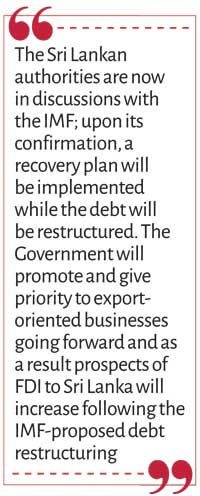
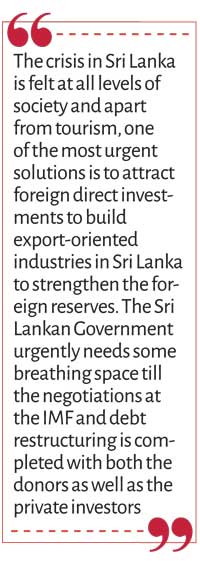

%20(1)%20(1)%20(1).gif)

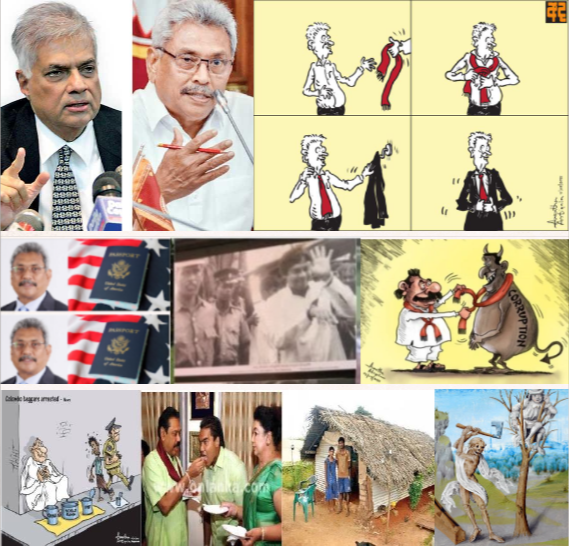
%20(1)%20(3)%20(1)%20(1)%20(1).png)
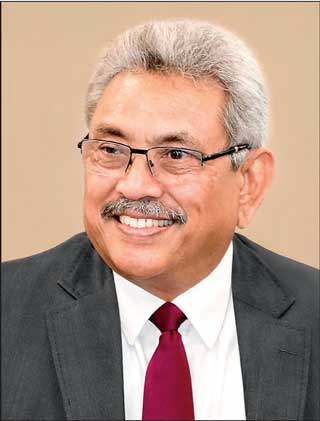
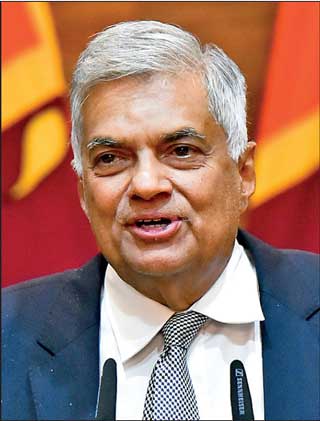
 food costs and other costs, without salary increases.
food costs and other costs, without salary increases. to resolve the issues.
to resolve the issues.